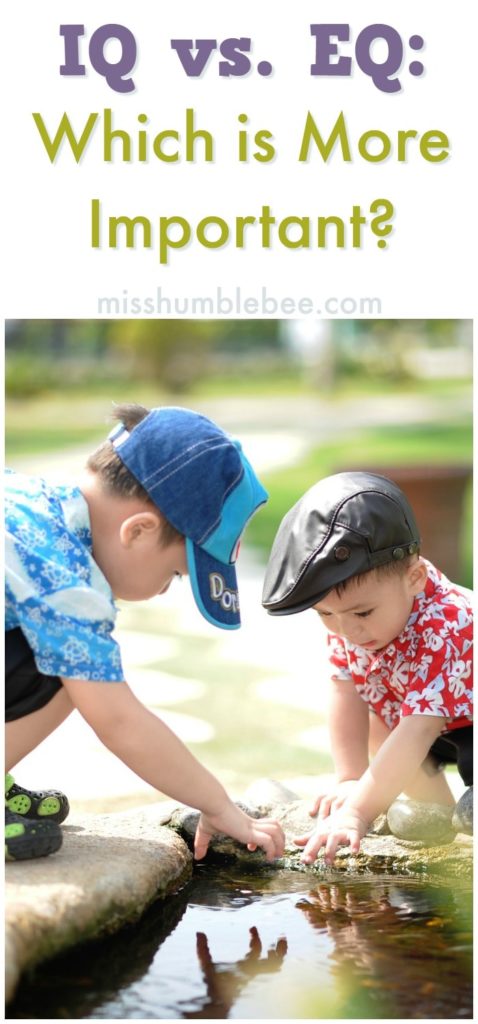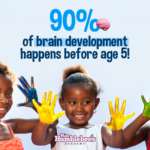At some point in your life, you’ve probably encountered the doctor with no bedside manner. Maybe you were getting a simple checkup or perhaps nervously awaiting an important test result. Either way, this doctor, while taking care of the necessary procedures and maybe even delivering happy news, probably did very little to put your mind at ease. You may have walked away from the appointment relieved to know you were healthy, but unsettled by the interaction.
Thankfully these doctors are not the norm, but there are people in all occupations and walks of life who exhibit far greater IQ than EQ. Conversely, there are also plenty of people in the world who have a high EQ, but an average or below average IQ.
Does it matter?
When it comes to your children, should you be more concerned about developing one over the other? Is one a better indicator of success later in life?
Let’s take a closer look at IQ vs EQ, and which is more important.

To begin, a couple of definitions are necessary.
IQ (Intelligence Quotient) is a number given to an individual to describe intelligence. It’s based on their score on a standardized test compared to others their age. For example, since the norm is 100, a person who has an IQ of 110 would be considered more intelligent than average.
EQ (Emotional Quotient, more commonly referred to as Emotional Intelligence) is an individual’s ability to understand, control, and express their own emotions, as well as understand and properly respond to the emotions of others.
For years the prevailing belief has been that IQ is more important than EQ when it comes to how successful a person will be. On the surface, this makes sense. A person with a high level of intelligence may be better equipped to perform certain jobs than someone with average or below average intelligence.
However, according to an article in Forbes, “85 percent of your financial success is due to skills in ‘human engineering,’ your personality and ability to communicate, negotiate, and lead.” In other words, your Emotional Intelligence plays a much larger role in how well you do financially than your Intelligence Quotient does.
Furthermore, some studies indicate that there is a strong correlation between emotional, mental, and physical health, as well as academic success. The influences of IQ and EQ are probably more intricately tied together than we fully understand.
It would appear then, that we are asking the wrong question.
Both IQ and EQ are important for future success.
What does this mean for your children?
When it comes to prioritizing what and how your children are learning, it’s important not to focus on one area (academic or emotional) to the exclusion of the other.
Many schools have begun to understand this and now have emotional learning programs within their curriculum, but you don’t have to wait for the school to take charge.
Below is a resource list of websites that can help you work with your children on their Emotional Intelligence.
Emotional Intelligence :: Aha! Parenting
How to Build Emotional Intelligence in Your Child :: Huffington Post
Ten Ways to Raise a Child With High Emotional Intelligence :: Edutaining Kids










